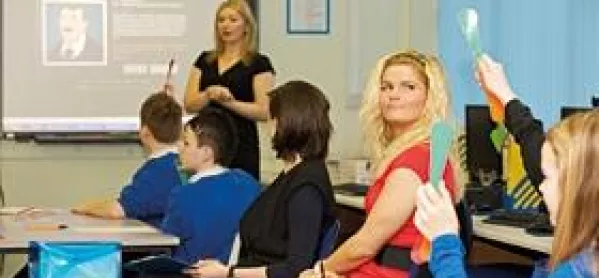Teacher training model mirrors medical field

All trainee teachers at the University of Glasgow are to undertake placements in schools modelled on those used in teaching hospitals as part of moves to make teaching a master’s-level profession, TESS can reveal.
The university is currently using the system, in which university tutors are based in schools for the duration of student placements, with its one- year postgraduate students.
But from September next year, all student teachers will be trained in this way when the university introduces its primary BEd successor qualification, the Master of Education (MEduc).
“This means our students will be placed in clusters of schools and a member of the university staff will be with them for the duration of the placement, running seminars and enabling the students to observe each other’s lessons,” said Beth Dickson, chair of the group behind the changes and deputy head of the university’s school of education.
Another feature of the new degree - awaiting approval from the university and the General Teaching Council for Scotland - is that by the end of the course students would be halfway towards a master’s qualification.
The move chimes with education secretary Michael Russell’s ambition that teaching becomes an all-master’s profession.
“We’re seeing a master’s degree as something which characterises early- phase teacher education,” Dr Dickson said. “At the moment, it is probably something associated with (the) middle phase.”
The new MEduc would also allow students to specialise in areas such as modern languages and science - highlighted as areas of weakness in Graham Donaldson’s review of teacher education, Teaching Scotland’s Future (see panel) - and to undertake a placement in a school overseas.
Closer links with other disciplines within the college of social sciences are being forged, with the aim of giving trainees a deeper understanding of the impact of poverty on children, and their educational attainment.
“The (Organisation for Economic Cooperation and Development) country report in 2005 said the Scottish school system was not strong enough to fully counter the effects of poverty,” Dr Dickson said. “We want our students to be very aware of the construction of poverty in Scotland so they have a broader perspective.”
The University of Glasgow began experimenting with the clinical practice model in two Glasgow secondaries and their feeder primaries in 2011.
The aim was to take inspiration from the practice at teaching hospitals used to train medical students and get away from the system in which tutors are sent into schools for just a couple of hours.
At present, the university is working with five school clusters in Glasgow, North Ayrshire, West Dunbartonshire and North Lanarkshire, and is looking to form more partnerships.
But the model has its critics. There are concerns that if some schools are selected to become the profession’s equivalent of teaching hospitals, many will miss out entirely on the opportunity to shape the next generation of teachers.
Others say that a higher concentration of students in certain schools could increase teacher workload and have a negative impact on children’s learning.
But the workload for teachers would be no more onerous, Dr Dickson said.
“One teacher will only ever be dealing with one student,” she said. “We are not asking teachers to do anything more than they would previously have done, but we are asking them to work differently and to work in partnership with us.”
emma.seith@tess.co.uk
Training rethink
Schools of education in Scottish universities began to revamp their teacher education programmes after Professor Graham Donaldson’s review of teacher education, Teaching Scotland’s Future, called for the traditional BEd degree to be phased out and replaced with degrees that combine academic and professional studies. The University of Dundee was first to launch its successor qualification; the University of Edinburgh recently revealed details of its new course, which includes a year-long school placement.
Photo credit: Cate Gillon
Keep reading for just £1 per month
You've reached your limit of free articles this month. Subscribe for £1 per month for three months and get:
- Unlimited access to all Tes magazine content
- Exclusive subscriber-only stories
- Award-winning email newsletters



